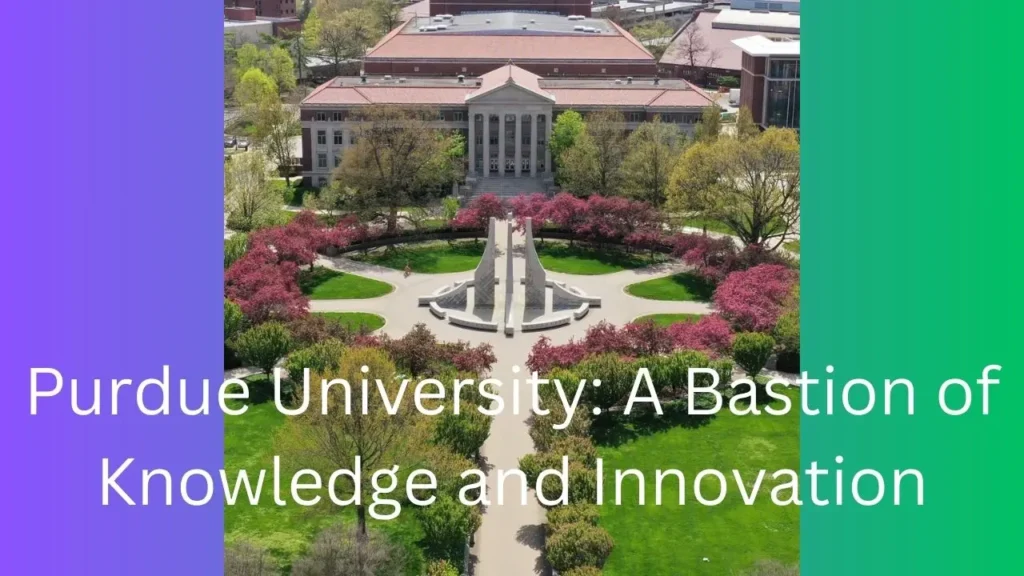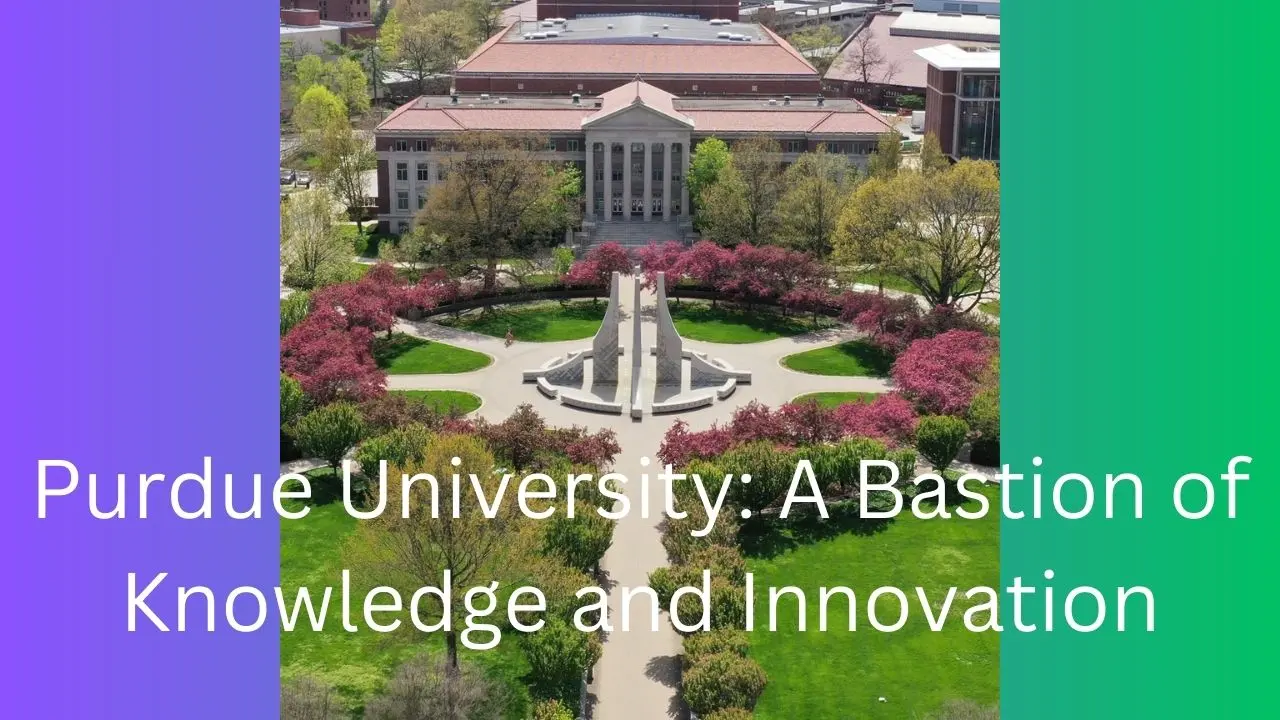Nestled in the heart of West Lafayette, Indiana, Purdue University stands as a beacon of academic excellence and technological prowess. Founded in 1869 by John Purdue, a visionary industrialist, the university has blossomed into a world-renowned institution, consistently ranked among the top public universities in the United States.
A Legacy of Innovation
Purdue’s rich history is intertwined with groundbreaking advancements that have shaped the modern world. The university’s pioneering spirit is evident in its numerous contributions, including:
- The Birthplace of the Gasoline Engine: In 1891, Elihu Thomson, a Purdue professor, developed the first practical gasoline engine, revolutionizing transportation and paving the way for the automotive industry.
- The Development of the Electric Car: Purdue alumnus Charles Kettering played a pivotal role in the invention of the electric starter, a crucial component in the development of electric vehicles.
- The Dawn of Computing: Purdue’s contributions to computer science are profound. In 1942, Purdue engineers developed the first electronic digital computer, the ABC (Atanasoff-Berry Computer), marking a watershed moment in the history of computing.

Academic Excellence and Research Prowess
Purdue University offers a comprehensive range of academic programs, encompassing over 200 undergraduate and graduate degree programs across a diverse spectrum of disciplines. The university’s academic rigor and research prowess are widely recognized, with Purdue consistently ranked among the top research universities in the nation.
Engineering Excellence: A Hallmark of Purdue
Purdue University’s College of Engineering is one of the most prestigious and respected engineering schools in the world. Renowned for its innovative programs and groundbreaking research, the college has produced a remarkable alumni network of engineers who have made significant contributions to various industries, including aerospace, automotive, and electronics.
A Vibrant Student Life
Purdue University fosters a vibrant and engaging student life, offering a plethora of opportunities for personal growth, leadership development, and extracurricular involvement. With over 800 student organizations, including academic clubs, cultural associations, and service-oriented groups, students can find their niche and pursue their passions beyond the classroom.
Boilermaker Pride: A Legacy of Athletic Excellence
The Boilermakers, Purdue University’s athletic teams, have a rich tradition of excellence, competing in the prestigious Big Ten Conference. Purdue has garnered numerous national championships and conference titles across various sports, including basketball, football, and track and field.
A Commitment to Sustainability
Purdue University is dedicated to environmental stewardship and sustainability, embracing eco-friendly practices across campus operations and academic initiatives. The university has earned numerous accolades for its sustainability efforts, including the Gold STARS rating from the Association for the Advancement of Sustainability in Higher Education.
Purdue University’s legacy of innovation, academic excellence, and commitment to sustainability positions it as a leading force in higher education. The university continues to push the boundaries of knowledge, preparing its students to become leaders and innovators who will shape the future.
10 FAQs about Purdue University
1. What is Purdue University?
Purdue University is a public land-grant research university in West Lafayette, Indiana. It was founded in 1869 by John Purdue, a businessman who made his fortune in the railroad industry. Purdue is a member of the Association of American Universities and is classified as a “R1: Doctoral Universities – Very high research activity”. The university has a total enrollment of over 45,000 students, including over 10,000 international students from 129 countries.
2. When was Purdue University founded?
Purdue University was founded in 1869 by John Purdue, a businessman who made his fortune in the railroad industry.
3. What are some of Purdue University’s most notable achievements?
Purdue University has a long history of innovation, including the development of:
- The first gasoline engine (1891)
- The first electric car (1900)
- The first electronic digital computer (1942)
4. What are some of Purdue University’s most popular academic programs?
Purdue University offers a wide range of academic programs, but some of the most popular include:
- Engineering
- Science
- Technology
- Business
- Pharmacy
5. What is Purdue University’s student life like?
Purdue University has a vibrant student life, with over 800 student organizations and over 30 fraternities and sororities. The university also has a number of recreational facilities, including a swimming pool, a bowling alley, and a fitness center. Purdue is home to a number of popular student events, including Boilermaker Day, the Purdue Grand Prix, and the Purdue Musical Organizations.
6. What are Purdue University’s athletics teams called?
Purdue University’s athletics teams are called the Boilermakers.
7. What conference does Purdue University belong to?
Purdue University is a member of the Big Ten Conference.
8. What are some of Purdue University’s most notable alumni?
Purdue University has a long list of distinguished alumni, including:
- Neil Armstrong, first person to walk on the moon
- Amelia Earhart, aviation pioneer
- A.G. Spalding, founder of Spalding sporting goods company
- Mitch Daniels, former Governor of Indiana
- David Hummer, Grammy Award-winning pianist
9. What is Purdue University’s commitment to sustainability?
Purdue University is dedicated to environmental stewardship and sustainability, embracing eco-friendly practices across campus operations and academic initiatives. The university has earned numerous accolades for its sustainability efforts, including the Gold STARS rating from the Association for the Advancement of Sustainability in Higher Education.
10. What is Purdue University’s motto?
Purdue University’s motto is “Making a Better World.”
Also Read –
How did university become so bad?

